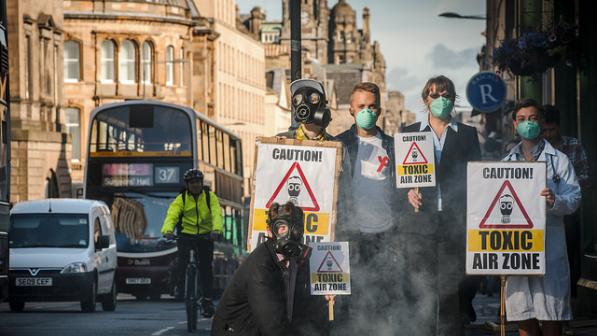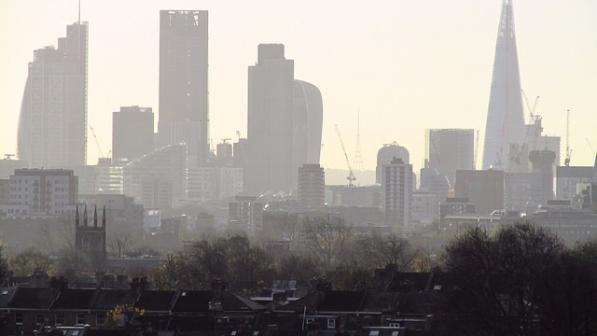Au revoir air pollution? French ban petrol and diesel - how about boosting cycling?

The French government announced plans to ban sales of all petrol and diesel vehicles in the country by 2040, in what the new ecology minister calls a “veritable revolution”. Mr Hulot, the minister, said the plans displayed the country's leadership in climate policy. Speaking on the day of the announcement, he said: "We want to demonstrate that fighting against climate change can lead to an improvement of French people's daily lives”, linking the public health emergency of air pollution with commitments to combat climate change made under the Paris accord of 2015.
The move came a day after Volvo committed to build only electric and hybrid vehicles from 2019 and has been hailed by environmentalists on both sides of the channel.
Pascal Canfin, the head of WWF France and a former Green politician, said the plans put France “among the leaders of climate action in the world”. Prof David Bailey, an automotive industry expert at Aston University, praised the time scales of the move, saying it sends a “very clear signal to manufacturers and consumers of the direction of travel and may accelerate a transition to electric cars.”
James Thornton, CEO of Client Earth, one of our partner organisations in the Healthy Air Campaign, said: “This is a huge statement of intent from the French government and an example of how we’re likely to see exponential change in the coming years as governments grapple with the necessary changes we have to make for air quality and our climate.
"These moves should be heeded by other governments and industry, who need to act to protect us from air pollution in our towns and cities and help mitigate climate change.”
This is a huge statement of intent from the French government and an example of how we’re likely to see exponential change in the coming years as governments grapple with the necessary changes we have to make for air quality and our climate.
James Thornton, CEO Client Earth
France is not the only country with plans to ban combustion-powered vehicles. The Netherlands and Norway have committed to getting rid of petrol and diesel vehicles by 2025, and Germany and India announced similar plans ahead of 2030.
The UK Government has made no commitments to ban diesel or petrol vehicles and was recently taken to court for a third time over its strategy to tackle lethal air pollution.
The commitments made by France and other countries certainly make them leaders in combating toxic air and climate change. Electric vehicles are an excellent way of cleaning up air in urban centres. And, compared to ordinary diesel and petrol powered vehicles, electric vehicles are a good way of mitigating against further climate change.
However, when compared to the humble bicycle, electric vehicles are less good.
Take one component of an electric vehicle as an example – the lithium-ion battery. The raw materials for these batteries are mined mainly in remote areas of South America and central Africa. They are then flown or shipped to processing plants in East Asia or the USA, where they become a battery.
The battery then takes flight to vehicle manufacturing factories, often in Europe or other parts of Asia. Here the battery meets other components – all with their own traveller’s tales – and forms part of a recognisable vehicle. The finished article is then shipped to markets across the globe. All this without a single mile shown on the clock.
[The French government's plans] send a very clear signal to manufacturers and consumers of the direction of travel and may accelerate a transition to electric cars.
Prof David Bailey, Automotive industry expert, Aston University
Some people will rightly point out that manufacturing a bicycle carries its own carbon cost. Carbon fibre is carbon costly and steel is far from green. However, there are fewer components in a cycle than in an electric vehicle so just by that measure the costs are lower.
Then comes the problem of powering electric vehicles. If the electricity being used is produced by carbon intensive materials, such as coal or natural gas, then the carbon cost of running an electric vehicle against a combustion engine is negligible.
As of 29 June 2017, the UK’s electricity is generated by a variety of sources. Coal and natural gas make up 50%, while renewables are responsible for 25%. It is likely that, over time, electric vehicles in the UK will save carbon against petrol and diesel vehicles but on nowhere near as wide a scale as cycling could.
Even if the UK government were to green the entire electricity grid, electric vehicles still do nothing to combat issues like congestion or the public health crisis facing our communities as a result of a lack of physical exercise. Encouraging cycle use is a way of holistically addressing all these policy points in one fell swoop – as handily pointed out by the Cabinet Office in 2009.
So, while in some ways the French commitment is a policy par excellence, the UK government can outdo their French friends by putting safe Space for Cycling at the centre of their transport plans.
In the meantime, why not help your local authority plan for cycling by producing a cycle tube map? Or, work with your local authority to pass a motion to support the Space for Cycling campaign? Cycling UK also has more resources to enable you to improve the cycling conditions where you live.

